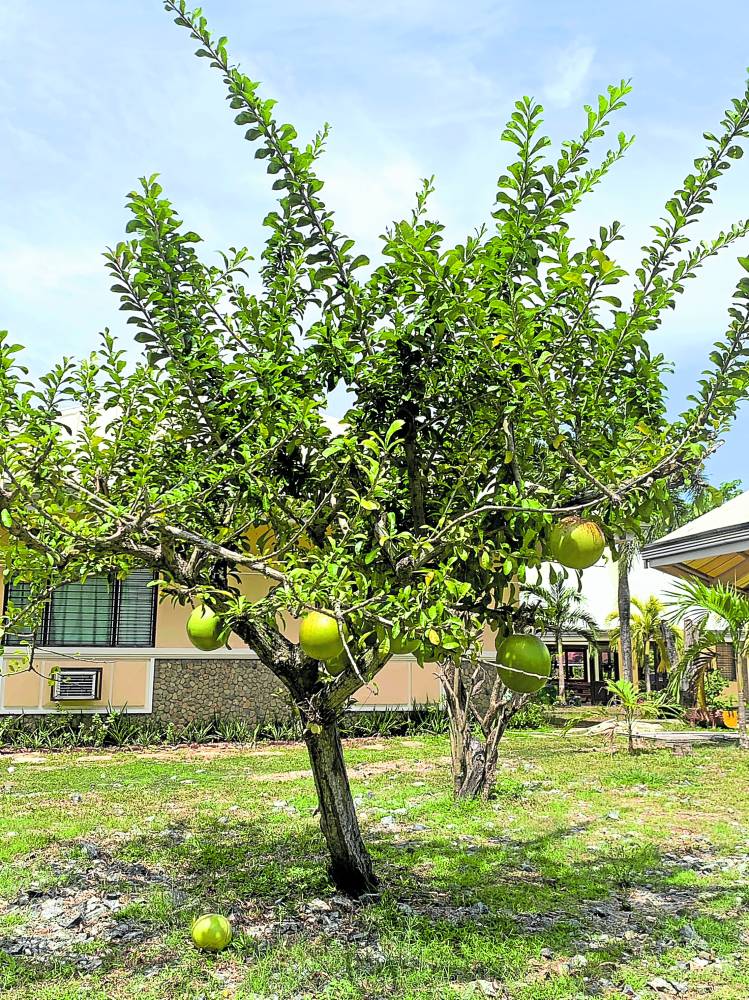Test your palate in Palawan
Palawan just celebrated 400 years since the arrival of Christianity and I was overjoyed to personally witness the culmination of their celebration in Puerto Princesa.
The final masses were presided by the Papal Nuncio Archbishop Charles John Brown on Aug. 24 and Cardinal Jose Advincula on Aug. 25. Bishop Pablo Virgilio David, president of Catholic Bishops’ Conference of the Philippines, also joined to concelebrate the mass with Archbishop Brown and give a talk on synodality. The hosts were Bishop Socrates Mesiona of the Apostolic Vicariate of Puerto Princesa and Bishop Broderick Pabillo of the Apostolic Vicariate of Taytay.
Priests from all over Palawan joined the grand celebration, some traveling 18 hours by banca! Of course I had to ask them about their different areas’ delicacies!
For fruits, the famously endemic one to Palawan is called tabo. This was described as a cross between santol and mangosteen both in shape and in flavor, meaning it is both sweet and sour. It is said to come from the forests of the Mantalingahan Mountain Range in Rizal, a remote town in southwest Palawan Island.
A unique feature of this fruit is that it grows from a vine that winds itself up forest trees but not from trees. What makes it extra special is that it is collected by the indigenous peoples of the area.
Another endemic fruit is the badak. Others call it lemasa. This is like jackfruit or langka, with a spiky rind, but indigenous to Palawan.
A unique though not necessarily indigenously Palawan fruit that I saw, still growing on its tree at the St. Ezequiel Moreno Spirituality and Development Center in Puerto Princesa, is calabash. It is translated as bottle gourd but it is also referred to as the “miracle fruit” for its health benefits, as it is exceptionally high in Vitamin C. But it also reportedly treats pneumonia and asthma, and strengthens the immune system. It is not indigenous to the Philippines as it is cultivated in South America and Africa, where it is used as an ornamental plant and for dried fruit, or with the shell even transformed into tableware.
The fruit looks like a young coconut. Strictly speaking, you cannot eat this directly as tetracyclic triterpenoid cucurbitacin that is found in the fruit has been reported to cause stomach ulcers. Neither the raw flesh nor the small white seeds of the fruit should be eaten. But you can make a juice out of the soft, white pulp of the fruit—just boil! You can also roast the seeds with wheat to make a refreshing coffee substitute; cook the seeds to make tea; or cook the leaves in soups and casseroles.
I have a confession: I did not try this. I didn’t want to bother the lovely nuns in the compound!
What I did try was the local delicacy served over lunch: sikat sikat. This is an edible seashell. Of course it’s not the shell that is edible but the meat trapped in the shell. It is easy to eat when a portion of this meat, whose texture is like a softer version of squid, can be pulled from outside of the shell. But when it is buried inside, it’s almost impossible to scoop out!
Finally, there is something called tamilok. This is a “woodworm” that is found in old mangroves. But it is not really a worm. It is actually shell-less saltwater clam that bores holes into wood. This is something that you would want try because the locals compare this to oysters!
These are just some of the delicacies of Palawan; worth a try even just out of curiosity when you visit!!
Happy 400 Years of Christianity, beautiful Palawan!!


